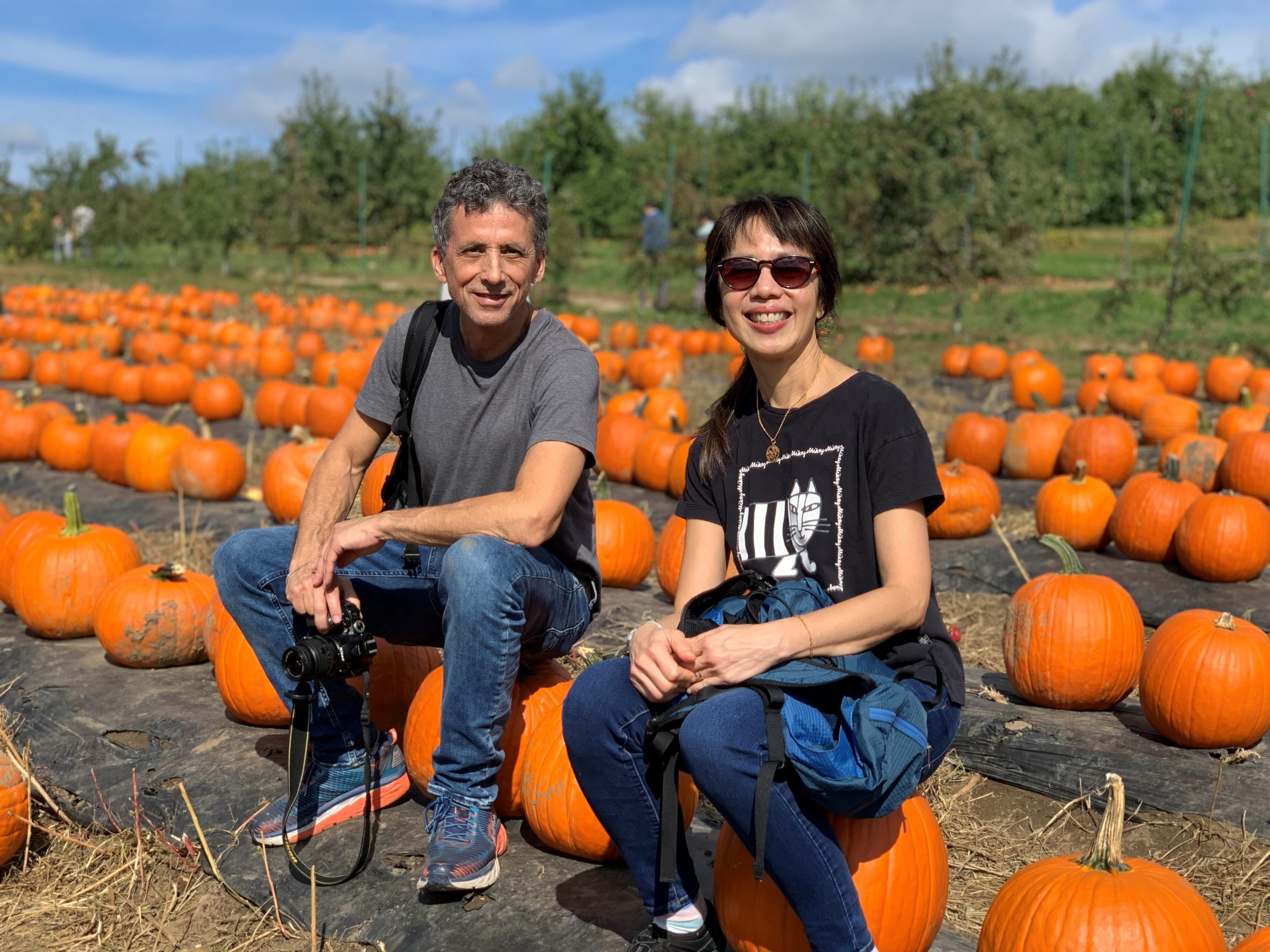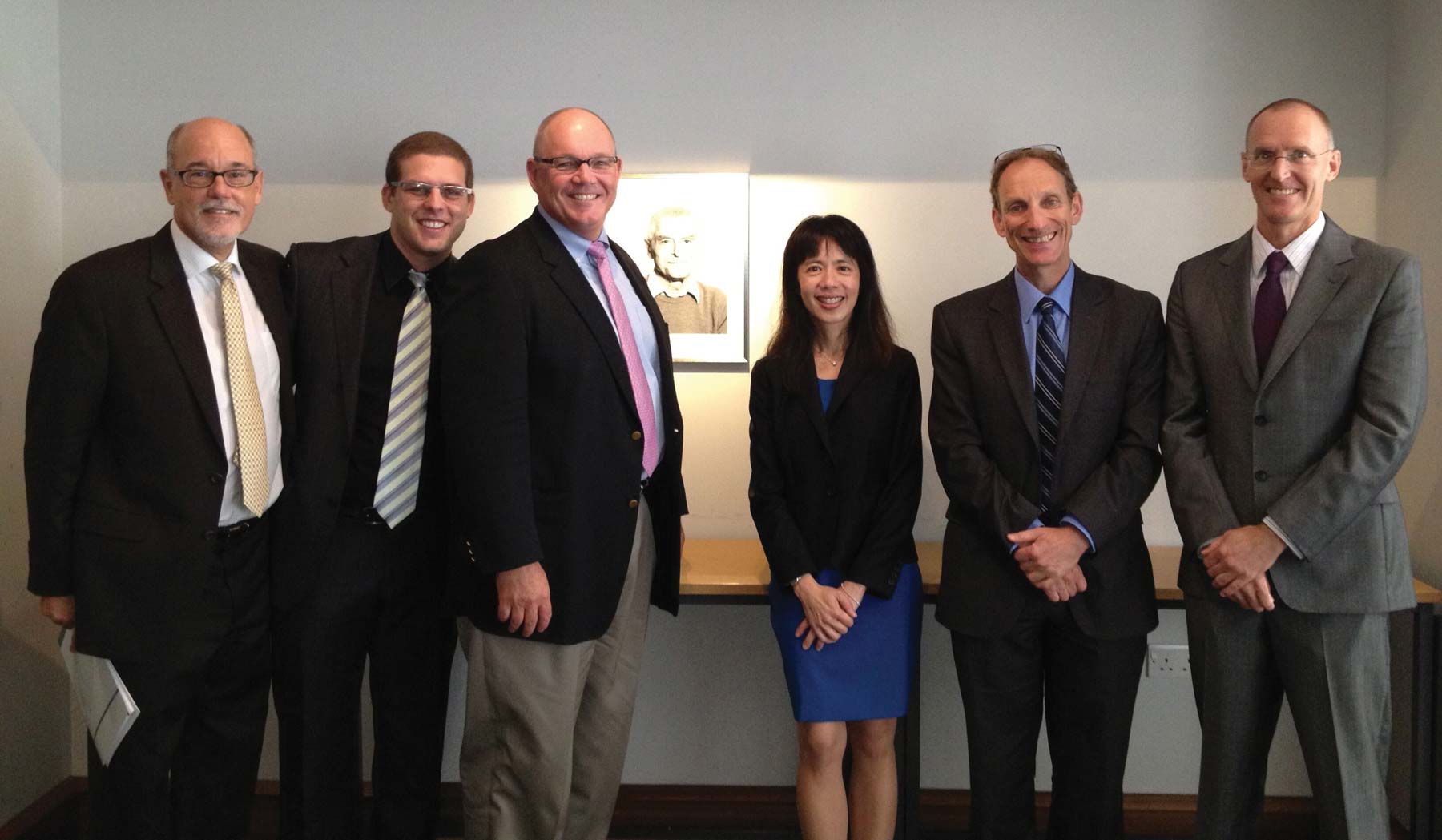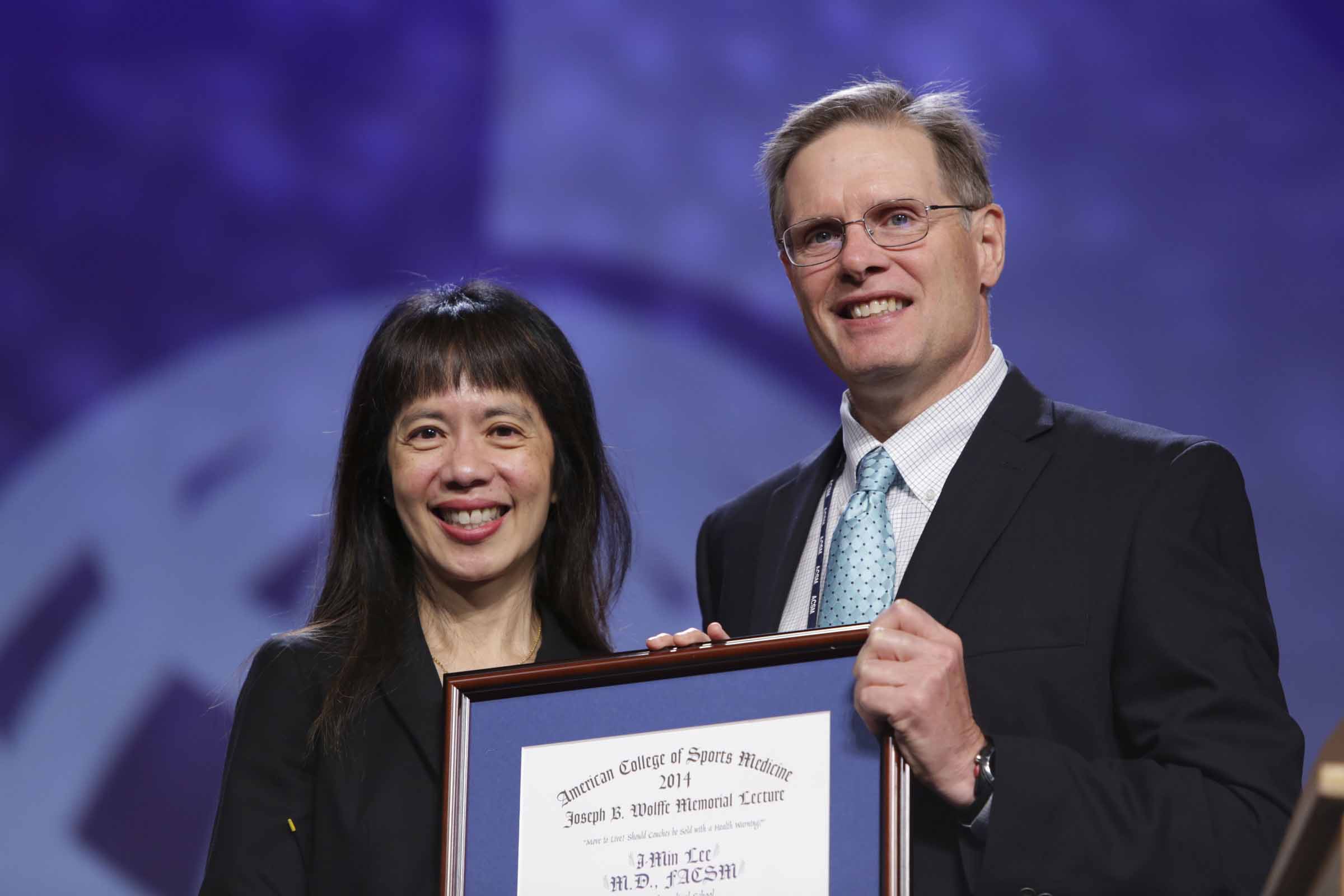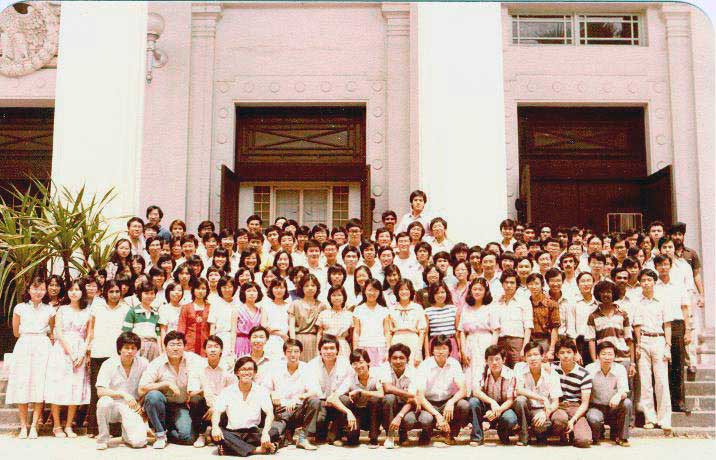The Secret to Longer Life – Walking
Prof Lee I-Min is a woman on a mission. As Professor of Medicine at Harvard Medical School and Professor of Epidemiology at the Harvard T.H. Chan School of Public Health, Prof Lee researches on the role of physical activity in preventing chronic diseases and enhancing longevity.
Her work has been extensively covered in several publications, from scientific research journals such as the Lancet to news media and popular health columns. The alumna from the Class of 1984 tells us how she fell into research in the United States and recalls her student years at NUS Medicine in Singapore.
Cycling to keep fit: Prof Lee eating up the miles on the road

Prof Lee and her husband, Geoff Kronik, at a pumpkin patch in an apple farm in autumn
“Medical training in Singapore provided me with knowledge on human pathophysiology, which is needed to understand the biological basis underpinning the effect of lifestyle behaviours— such as physical activity—on health. Training in clinical medicine also allows me better grounding in and understanding of clinical research.”
After completing her undergraduate studies at NUS Medicine, Prof Lee enrolled at Harvard to complete a masters programme in Public Health. During this time, she was exposed to “many wonderful professors who did fascinating research”, and described her path into research as one guided by serendipity.
“When I completed by masters degree, I wanted to go on to a doctoral degree. A wise professor suggested I work on a research project to assess if I truly wanted to spend my life this way. So I ended up working for a year at Stanford University investigating risk factors for mycosis fungoides.” It was at Stanford where she met the late Professor Ralph S. Paffenbarger, Jr., a pioneer and giant in the field of physical activity research.
“He persuaded me to work in his field, even though I had no background in the area and was initially not interested in the topic. I ended up writing a doctoral thesis that examined the role of physical activity in preventing cancer. Paff, as everyone called him, introduced me to many of his colleagues, including the late Professor Jeremy Morris from the London School of Hygiene and Tropical Medicine. Jerry and Paff are recognised as fathers of the field of physical activity epidemiology. Paff was instrumental in getting me started and interested in physical activity research, and was a wonderful mentor.”
“Early in my career, I focused mainly on research for the sake of scientific discovery. The translational aspect, how the findings apply to the lives of people or inform policy, did not appeal much to me at first. Over time, I have come to realise that translation is as essential as discovery: scientific discoveries will not be meaningful if they are merely theoretical and not applied to improve lives in some way.”

The Lancet Physical Activity Series 1 Steering Committee at the launch of the series in London 2012, prior to the 2012 summer Olympic Games: (left to right) Prof Gregory Heath, University of Tennessee at Chattanooga, USA; Prof Pedro Hallal, Federal University of Pelotas, Brazil; Prof Harold Kohl 3rd, University of Texas at Austin, USA; Prof Lee; Prof Adrian Bauman, Sydney University, Australia; Dr Michael Pratt, Centers for Disease Control and Prevention, USA

Prof Lee was honoured as the 2014 Joseph B. Wolffe Memorial Lecturer, American College of Sports Medicine
We got to move it, move it
Prof Lee mused that too many people are inactive and find it unavoidable that they sit for long hours at work. “The more I dug into the research, the more I realised how essential and beneficial physical activity is to health. We’re not looking at extreme performance like in athletes, but at regular folks—it affects 7,500 practically all physiological systems in the body, with minimal side STEPS effects. What drug does this? Work that I have done with the international Lancet Physical Activity Series group estimates that 4,400 inactivity is responsible for as many deaths worldwide annually as STEPS smoking!”1
She points out that research has shown that physical activity mitigates some of the health risks associated with sedentary behaviour. Even among overweight or obese persons who have a higher risk of chronic diseases such as heart disease, cancer, and diabetes, being physically active helps them live about 3 to 4 years longer than someone of similar weight who is inactive (PLOS Med 2012;9:e1001335). Regardless of genetic profile, physical activity is beneficial for health.
“Not smoking would be on the top of my list of healthy behaviours. Apart from that, what your grandparents likely told you still holds true! Eat healthily, exercise, and get enough sleep. That much we know; what we don’t, for which research continues, includes specific details needed for translation and informing guidelines. For my field of work, I think the message is very simple: move more; even a modest amount of movement is beneficial for health.”
Prof Lee admits that she has added motivation to be active— after all, how credible is a researcher who doesn’t practise what they lecture on? “I typically run 12 to 15 miles a week, and walk a lot for transportation since I’m not very fond of driving. In summer, when the weather is good, I bicycle also. I try to eat reasonably healthily, although chocolates and desserts are a weakness, and get sufficient sleep. And, of course, I don’t smoke.”

An MBBS class photo taken of Prof Lee and her classmates, in 1981; the students graduated in 1984
Keeping the Singapore Connection
Prof Lee lives with her husband in Boston and counts travelling, exercise, and exploring ethnic restaurants among her favourite activities to do with friends and family. She keeps the connection with family and friends who still live in Asia, making trips back to Malaysia and Singapore quite regularly.
“I have friends I am extremely close to whom I see yearly, if not more frequently, either in Singapore or in the US. I’m Malaysian and my parents live in Penang so I often go through Singapore on my way back home. My sister works in obstetrics and gynaecology in Singapore—another reason to stop by!
Prof Lee waxes lyrical about the food here. “I miss Malaysian/ Singaporean cuisine and rely on my Singaporean friends to take me to the latest hot spot for makan2. I spend a fair amount of time in the Singapore airport while in transit. I have to say this airport is, in my opinion, the best in the world with regard to its efficiency, its aesthetics and the services available. I don’t miss the heat and humidity; although in the middle of long, cold winters in Boston, the heat doesn’t seem that objectionable after all!”
1 Read more here.
2 Translates as ‘to eat’, from the Malay language.
